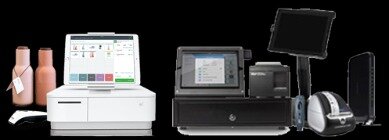
Xero and QuickBooks Online are robust accounting software programs and, in our case study, both prove why they’re the leading tools in the industry. They may have almost the same features, but each has its own strengths and drawbacks. The software must have features that allow users to set sales tax rates, apply them to invoices, and enable users to pay sales tax liability.
Many businesses will find themselves needing to move to the $60 per month plan. At that cost, you should switch to the QuickBooks Essentials Plan, which is the same price and comes with better reporting features and the ability to manage all 1099 contracts. It is free to use all of their base features, and they charge a payment processing fee of 2.9% + $0.30 for credit cards and 1% for bank payments. This plan works great for solopreneurs, freelancers, and brand new businesses. But as your business grows, you could wind up paying a lot more in payment processing fees than a subscription plan on Xero or QuickBooks Online.

Integrates with more than 750 apps and offers live, in-house bookkeeping add-on. Includes audit trails and easy accountant access; has millions of users so your accountant will likely be familiar with it. Includes tools that help automate the reconciliation process, along with a global search function and customizable dashboard; has a simple layout.
The Company Admin permission can supervise everything, but cannot remove the Master Admin’s access. QuickBooks Online version is not user-friendly and has many features that might confuse users in the beginning. Xero is compatible with major platforms such as iOS, Windows, Android, and Mac. The software’s artificial intelligence prowess allows you to generate multiple invoices and undertake large transactions very easily. Every Xero plan also comes with a Hubdoc integration, which allows customers to capture and upload data without having to enter it manually. This dashboard includes key information, but it doesn’t allow you to drill down into every section to take a closer look.
Xero vs QuickBooks: At a Glance
Some business owners, who like to work through a hiccup on the phone, should prefer Quickbooks as their business accounting software. The support network and live customer services through both, telephone and live chat, makes it a great alternative. Between the two, QuickBooks is a slightly more basic accounting tool. Xero is just a little more advanced in multi-currency support, reporting for multiple entities, and payment integrations.
Ultimately, when deciding between Xero vs. QuickBooks, it depends on the complexity and size of your business. QuickBooks offers both online and desktop versions, where Xero is just an online tool. So, consider how and where your team usually completes accounting or bookkeeping tasks from when debating between the software. Although both offer similar features, including tax management, file storage and financial reports, the two have some key differences. Businesses with inventory items should choose accounting software that can track inventory costs, manage COGS, and monitor inventory units. The A/P section focuses on vendor management, bill management, bill payments, and other payable-related transactions.
But if you wish to have optional add-on features for your accounting needs, there are two more plans that Xero has to offer. With essential features, Xero offers three pricing tiers, from $12 to $65 per month, as mentioned below. Requirement and dependence on the support and customer service of the software depend from business to business. A cloud accounting software support team should aim to deliver the highest standards of expertise and services. It’s most basic ‘Starter’ plan is for sole traders and startups and offers up to 20 invoices/quotes and 5 bill payments a month.
- This website is using a security service to protect itself from online attacks.
- The right solution supports business needs as a whole, not just the finance team or bookkeepers.
- However, Xero only allows four total tracking categories — two active and two archived.
- With Xero, businesses can eliminate the need for paper records and reduce accounting fees.
- We recommend trying both tools for free for 30 days before settling for one.
Generally speaking, you don’t want too many cooks in the kitchen when it comes to your accounting software. QuickBooks Online’s accounting software has a looser setup structure, allowing you to enter the bare minimum and add the rest as you go along. Pricing levels for Xero and QuickBooks Online are very similar, with both applications offering three pricing plans. For example, both mid-level plans are similar in price and scope, with the Growing plan in Xero costing you $32, while QuickBooks Online’s Plus plan is $35.
QuickBooks
Kelly is an SMB Editor specializing in starting and marketing new ventures. Before joining the team, she was a Content Producer at Fit Small Business where she served as an editor and strategist covering small business marketing content. She is a former Google Tech Entrepreneur and she holds an MSc in International Marketing from Edinburgh Napier University. In QuickBooks, the Master Admin permission can allow you to add users, alter billing information, and send money.
Can support larger small businesses with dozens of employees; highest-tier plan includes 25 users. Xero offers this through Hubdoc so you can access your documents online. QuickBooks Debits and Credits Normal Balances, Permanent & Temporary Accounts offers receipt and document organization with its mobile app as well as the online version. For an additional $50, add a Bookkeeping setup with a Live Bookkeeper.
Inventory
But if you need features such as advanced reporting or live customer service, then QuickBooks Online is the right pick for you. QuickBooks includes a great reporting suite, and it’s even better if you can get the Pro plan for enhanced reports and project profitability. QuickBooks Online offers a cloud-based system which allows you to streamline many repetitive accounting tasks and processes. However, 25 users is plenty for most contractors’ accounting needs.

QuickBooks is a popular accounting software used by small businesses, solopreneurs and freelancers. The software helps users to keep track of their finances, customers and vendors. QuickBooks and Xero are both popular accounting software programs that offer a wide range of features and integrations. QuickBooks is a good choice for small businesses and sole proprietorships, while Xero is a good choice for businesses that are expanding or have complex finances.
Wave Accounting
However, for users with no accounting experience, we recommend Xero. Xero is far ahead of QuickBooks Online in terms of fixed asset accounting. You can record a fixed asset purchase in QuickBooks Online, but you can’t track your fixed assets and calculate depreciation. We evaluated Xero and QuickBooks across several accounting categories and found significant differences in terms of bank reconciliation and fixed-asset accounting. Below, we include a detailed assessment of the two programs across our preset metrics. Both QuickBooks and Xero are excellent accounting systems for small businesses, and customer reviews reflect how well the software providers understand their audiences.
Ideally, you’ll want all your transactions flowing seamlessly into the software, with regular updates helping you keep on top of your cashflow. Both can integrate seamlessly with Wise Multi-currency account which is specifically handy for sending and receiving international payments. Its dashboard provides a clear overview of your financials, and tasks like invoicing and expense tracking can be accomplished with just a few clicks.
With its intuitive interface and startup-friendly pricing, Xero is known as a platform for small businesses. It’s an all-in-one solution for managing invoicing, expense tracking, and payroll, and it syncs with your bank accounts to keep data updated in real-time. Users appreciate that Xero is easy to set up and use, with a simple and clean user interface along with intuitive features. Reviewers also praised the fixed assets manager and the project accounting capabilities.
Xero vs. QuickBooks Online: An overview
Small business ideas, business tax news and small business consulting from Barbara Weltman to provide business owners with the information they need to succeed. Visit our small business blog, Idea of The Day®, small business books and articles on small business taxes, small business finance and small business legal advice. We’ve taken the non-promotional pricing into consideration for the purposes of this article. Xero’s support appears to be the most responsive via phone and email support. There were several complaints about either slow responses or long phone support hold times with both Wave and QuickBooks. If you’re a freelancer or solopreneur and don’t have complex financial needs, this might work best for you.